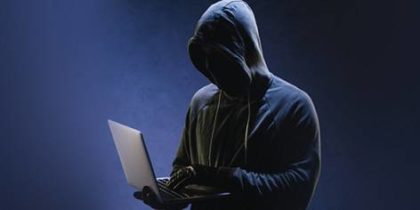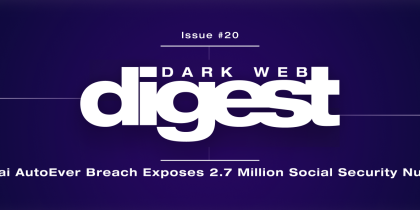The dark web has a reputation straight out of a crime thriller. It’s often linked to hackers, drug markets, and stolen data dumps, so it’s no surprise many people wonder if just visiting it could land them in trouble. However, the truth is a little more nuanced.
Accessing the dark web itself isn’t automatically a crime and it’s what you do there that actually matters. In this blog, we’ll break down what the dark web really is, whether going on it is illegal, and what risks you should be aware of before exploring. Let’s dive in:
What is the Dark Web?
The dark web is a hidden layer of the internet that you can only reach using special software like the Tor browser, which masks your identity and allows access to sites that don’t show up in normal search engines. While it’s often painted as a hub for crime, the dark web is also home to forums, encrypted messaging platforms, and privacy-focused websites.
Your email could be compromised.
Scan it on the dark web for free – no signup required.
It’s different from the deep web, which simply refers to all the parts of the internet not indexed by search engines, such as your email inbox, medical records, or private databases. The dark web is just a small slice of the deep web, but it’s the part most associated with secrecy, anonymity, and, unfortunately, illegal activity.
- Related Read: Dark Web vs Deep Web
Is it Illegal to Go on the Dark Web?
Simply visiting the dark web is not illegal in most countries. Using tools like the Tor browser to explore hidden websites is perfectly lawful, as long as you’re not engaging in any criminal activity. The confusion comes from the fact that many dark web marketplaces and forums are used for illegal trade, such as drugs, weapons, or stolen data.
Law enforcement agencies monitor these spaces closely, so if you cross the line from browsing into buying or participating in illegal exchanges, you could end up facing serious consequences. In short, accessing the dark web isn’t a crime, but what you do there determines whether you’re on the right side of the law.
What Activities are Illegal on the Dark Web?
While browsing itself isn’t against the law, many activities on the dark web are illegal and heavily prosecuted. Some of the most common include:
- Buying or Selling Drugs: Dark web marketplaces have become notorious for the anonymous sale of narcotics, from prescription pills to hard drugs. Transactions are usually carried out with cryptocurrency, making them harder to trace, but law enforcement agencies actively target and shut down these markets.
- Purchasing Weapons: Firearms, explosives, and other dangerous weapons are sometimes advertised on hidden sites. Attempting to buy them not only breaks strict national and international laws but also puts buyers at risk of scams or entrapment operations run by authorities.
- Trading Stolen Data: One of the most common illegal uses of the dark web is selling stolen information like credit card numbers, bank logins, or full identity profiles. Criminals use this data for fraud, while victims often don’t realize their information has been compromised until damage is already done.
- Hiring Illegal Services: From hacking attempts and DDoS attacks to more extreme offers, the dark web provides a platform for criminals selling illicit services. Beyond the legal risks, most of these so-called services are scams designed to steal your money without delivering anything.
- Sharing or Accessing Abusive Material: This is one of the darkest and most serious aspects of the dark web. Content involving child exploitation or other abusive material is strictly illegal worldwide, and law enforcement agencies dedicate significant resources to tracking and prosecuting offenders.
The moment you engage in these activities, you’re no longer just “exploring” and committing crimes with severe consequences, both legally and personally.
What Legal Uses Does the Dark Web Have?
Despite its reputation, the dark web isn’t entirely a criminal playground. There are legitimate and even valuable reasons some people use it, especially where privacy and security are concerned. Examples include:
- Protecting Free Speech: Activists and journalists in countries with censorship or strict surveillance use the dark web to share information without fear of government crackdowns.
- Communicating Anonymously: Secure forums and encrypted messaging platforms on the dark web allow people to discuss sensitive topics, such as politics, health issues, or whistleblowing, while protecting their identity.
- Supporting Whistleblowers: Many news organizations and NGOs run dark web sites where whistleblowers can safely submit documents or evidence of corruption without risking exposure.
- Related Read: Double VPN vs Tor over VPN for Whistleblower Protection
- Conducting Cybersecurity Research: Security experts monitor the dark web to track emerging threats, analyze hacking tools, and understand how stolen data is traded in order to better protect users.
Risks of Accessing the Dark Web
Even though simply visiting the dark web isn’t illegal, it comes with serious risks that can catch unsuspecting users off guard. Some of the biggest dangers include:
Risk #1: Encountering Malware
Dark web sites are often unregulated and unsafe, making them a breeding ground for malware like spyware, trojans, and ransomware. One careless click can infect your device, steal sensitive data, and even lock you out of your system until you pay a ransom.
Risk #2: Falling for Scams
Fraud is rampant on the dark web. Many so-called vendors and marketplaces advertise goods or services but disappear the moment you transfer cryptocurrency. Since payments are anonymous and irreversible, victims have no way to recover lost money.
Risk #3: Accidentally Viewing Illegal Content
Because content isn’t clearly labeled or moderated, you can unintentionally land on sites hosting disturbing or illegal material. Even if you don’t intend to view it, simply accessing such content could place you under investigation or lead to serious legal issues.
Risk #4: Exposing Personal Data
Ironically, the dark web’s promise of anonymity can backfire if you’re not cautious. Visiting without safeguards like a VPN can expose your real IP address. Hackers and trackers can use this information to identify you, monitor your activity, or target you.
How to Stay Safe If You Access the Dark Web
If you do choose to explore the dark web, it’s important to protect yourself from the risks that come with it. Here are some key precautions you should take:
Use a VPN
A VPN hides your real IP address and encrypts your internet traffic before it even reaches the Tor network. This adds an extra layer of anonymity and protects you from leaks that could expose your identity to hackers, ISPs, or government surveillance.
Related Read: The Best VPN for Tor to Boost Privacy & Anonymity
Keep Tor updated
The Tor browser is your main gateway to the dark web, and like any software, it needs to be kept up to date. Updates often patch security vulnerabilities that attackers could exploit, so running the latest version is one of the simplest ways to stay safer.
Avoid downloading files
Files on the dark web are a common source of malware. Unless you’re absolutely certain of the source, avoid downloading anything, whether it’s documents, images, or software. Even innocent-looking files can carry trojans or spyware designed to compromise your system.
Never share personal information
The more information you give away, the easier it is for criminals to connect your online identity to your real-world self. Avoid using personal emails, phone numbers, or payment methods that can be traced back to you. Stick to anonymous communication and crypto wallets if necessary.
Steer clear of illegal marketplaces
Even if you’re curious, don’t browse marketplaces that sell drugs, weapons, or stolen data. Law enforcement agencies monitor them closely, and simply engaging with these platforms can put you at risk of investigation or scams.
Final Word
Visiting the dark web itself is not illegal, but it’s far from risk-free. The line between legal and illegal activity is thin, and stumbling into the wrong place or engaging with the wrong content can have serious consequences.
At the same time, the dark web does serve legitimate purposes, from protecting free speech to safeguarding whistleblowers. If you choose to explore it, the key is caution: use the right tools, avoid suspicious sites, and never get involved in illegal activities.
Frequently Asked Questions
Most identity theft forums on the Dark Web are illegal, as they involve buying, selling, or sharing stolen personal information. Accessing the Dark Web itself isn’t automatically illegal, but visiting or participating in these forums can put you at serious legal risk.
Is going on the dark web illegal depends on what you do there; accessing it is not illegal, but engaging in criminal activity on it is against the law.
People ask is going on the dark web illegal because the dark web has a reputation for illegal marketplaces, hacking forums, and illicit content.
To understand is going on the dark web illegal, know that using Tor or similar browsers is legal in most countries, but participating in illegal activities is not.








